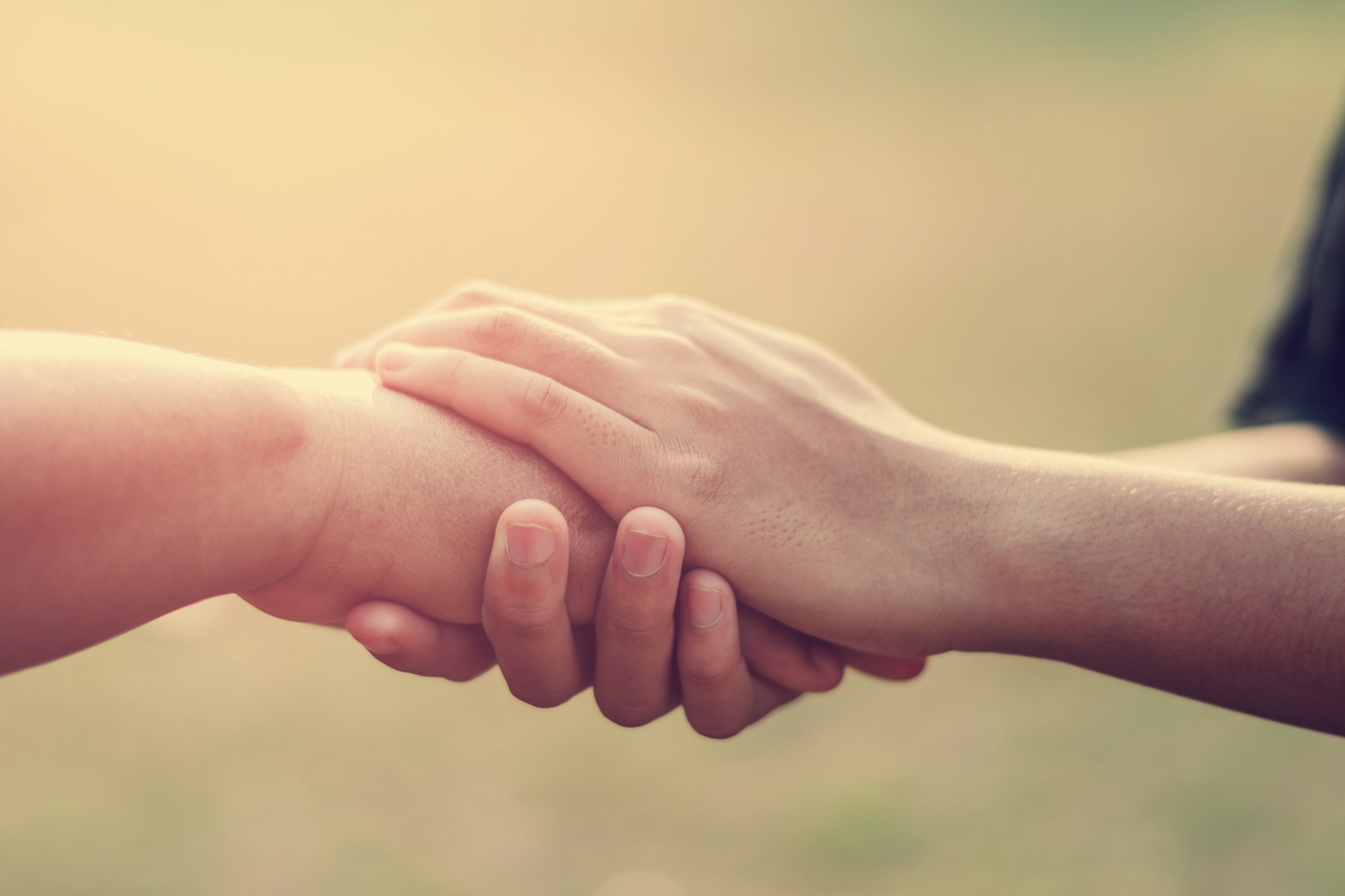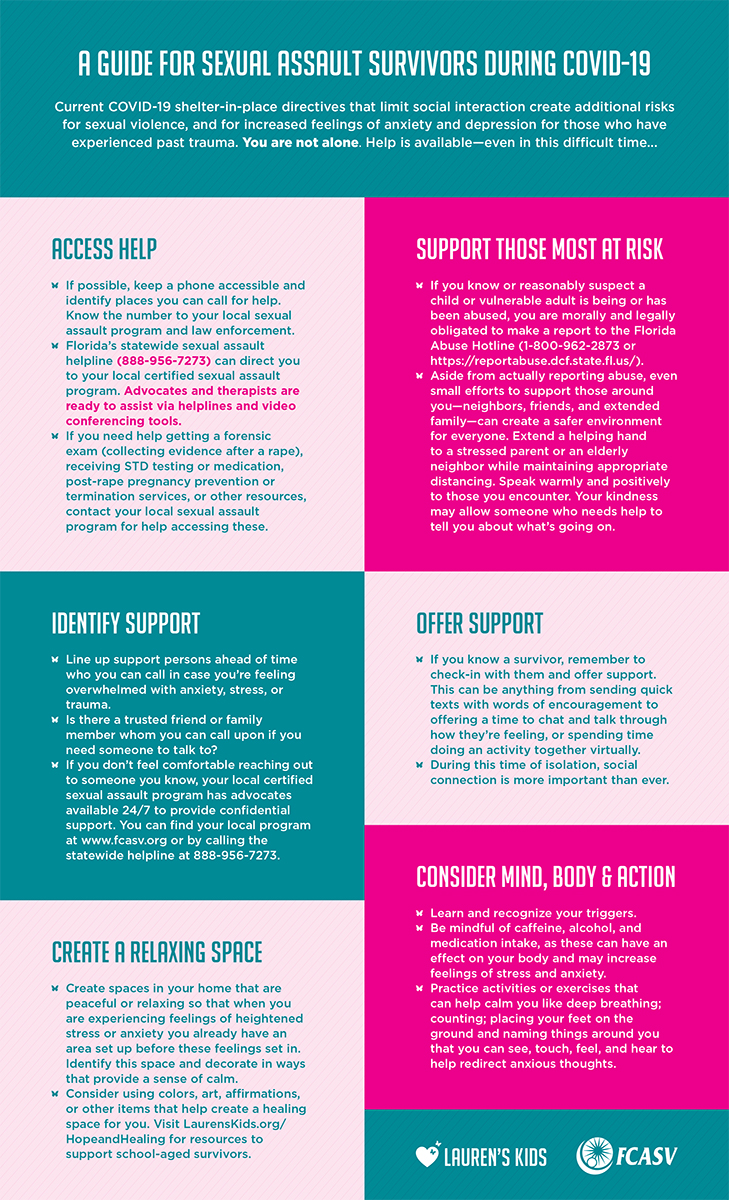Current COVID-19 social distancing directives that limit social interaction create additional risks for sexual violence, and for increased feelings of anxiety and depression for those who have experienced past trauma. You are not alone. Help is available—even in this difficult time…
- Access Help
- If possible, keep a phone accessible and identify places you can call for help. Know the number to your local sexual assault program and law enforcement.
- Florida’s statewide sexual assault helpline (888-956-7273) can direct you to your local certified sexual assault program. Advocates and therapists are ready to assist via helplines and video conferencing tools.
- If you need help getting a forensic exam (collecting evidence after a rape), receiving STD testing or medication, post-rape pregnancy prevention or termination services, or other resources, contact your local sexual assault program for help accessing these.
- Support Those Most at Risk for Abuse
- If you know or reasonably suspect a child or vulnerable adult is being or has been abused, you are morally and legally obligated to make a report to the Florida Abuse Hotline (1-800-962-2873 or https://reportabuse.dcf.state.fl.us/).
- Aside from actually reporting abuse, even small efforts to support those around you—neighbors, friends, and extended family—can create a safer environment for everyone. Extend a helping hand to a stressed parent or an elderly neighbor while maintaining appropriate distancing. Speak warmly and positively to those you encounter. Your kindness may allow someone who needs help to tell you about what’s going on.
- Identify Support
- Line up support persons ahead of time who you can call in case you’re feeling overwhelmed with anxiety, stress, or trauma.
- Is there a trusted friend or family member whom you can call upon if you need someone to talk to?
- If you don’t feel comfortable reaching out to someone you know, your local certified sexual assault program has advocates available 24/7 to provide confidential support. You can find your local program at www.fcasv.org or by calling the statewide helpline at 888-956-7273.
- Create a Relaxing Space
- Create spaces in your home that are peaceful or relaxing so that when you are experiencing feelings of heightened stress or anxiety you already have an area set up before these feelings set in. Identify this space and decorate in ways that provide a sense of calm.
- Consider using colors, art, affirmations, or other items that help create a healing space for you. Visit LaurensKids.org/HopeandHealing for resources to support school-aged survivors.
- Consider Mind, Body, and Action
- Learn and recognize your triggers.
- Be mindful of caffeine, alcohol, and medication intake, as these can have an effect on your body and may increase feelings of stress and anxiety.
- Practice activities or exercises that can help calm you like deep breathing; counting; placing your feet on the ground and naming things around you that you can see, touch, feel, and hear to help redirect anxious thoughts.
- Offer Support
- If you know a survivor, remember to check–in with them and offer support. This can be anything from sending quick texts with words of encouragement to offering a time to chat and talk through how they’re feeling, or spending time doing an activity together virtually.
- During this time of isolation, social connection is more important than ever.
Download a designed PDF containing these tips from Lauren’s Kids and the Florida Council Against Sexual Violence below.


